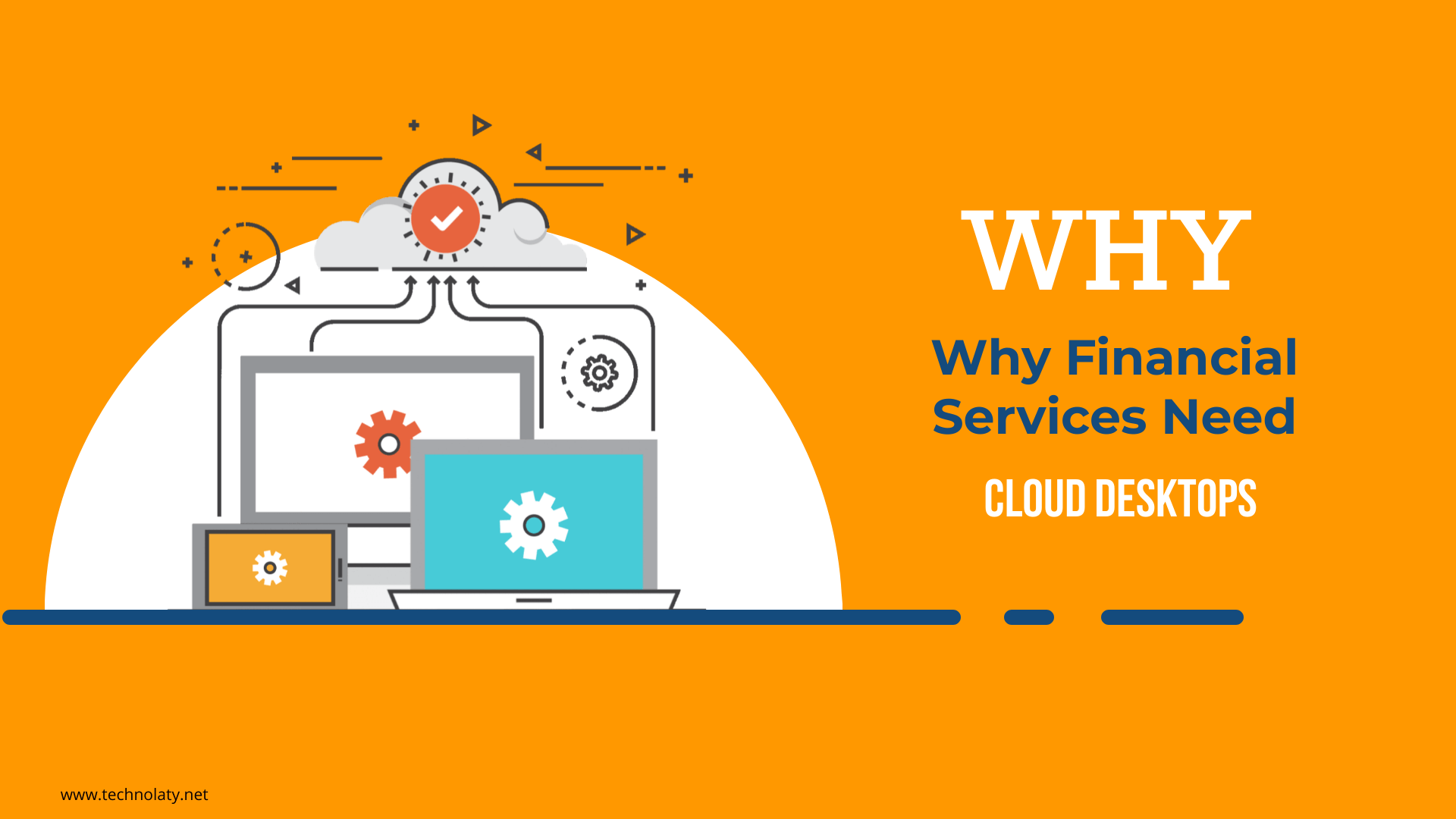Financial services organizations operate in a fast-paced environment where meeting the needs of demanding clients is crucial. To stay competitive, they need to be agile and efficient, which means they can no longer afford to rely on traditional IT systems. A significant step in this transformation is adopting cloud desktops, which offer flexibility, security, and cost-effectiveness.
Understanding Virtual Desktops
Virtual desktops are not tied to any specific device. Unlike traditional desktops, where files and applications are stored locally on a PC or laptop, virtual desktops reside on servers and can be accessed from any device. This flexibility allows employees to work from anywhere, on any device, without being limited by the hardware they use.
Now, let’s examine why financial services (FinServ) companies should switch to cloud desktops.
1. Enhanced Security
One of the most critical concerns for FinServ companies is security. These organizations handle sensitive customer information, making them prime targets for cyberattacks. Virtual Desktop Infrastructure (VDI) offers several security enhancements, including data loss prevention, simplified patching, and secure remote access.
With cloud-based VDI, sensitive data is stored in secure, cloud-based data centers rather than on vulnerable local machines. This reduces the risk of data breaches and ensures customer information is protected. Cloud providers continuously update their security measures, ensuring FinServ companies stay ahead of potential threats.
2. Improved Mobility
Today’s workforce is increasingly mobile, and the financial services industry is no exception. Employees expect to access data and applications from anywhere, at any time, using the device of their choice. Cloud desktops enable this mobility by allowing employees to access their virtual desktops from any device with an internet connection.
This increased mobility not only improves employee satisfaction but also boosts productivity. Employees can work from home, on the go, or in the office without being tied to a specific machine. Cloud-based desktops ensure data remains secure and compliant with regulations, even remotely accessed.
3. Greater Flexibility
Another significant advantage of cloud desktops is flexibility. Since virtual desktops are not tied to specific devices, users can access their personalized desktop environment from any machine. This is particularly useful for employees who may not always work in the exact location or branch.
For example, bank tellers can access their desktops from any branch, ensuring a seamless work experience. Additionally, if a user’s device fails, they can quickly switch to another device without losing any work or wasting time setting up a new machine.
4. Support for Legacy Applications
While many industries have transitioned to cloud and mobile applications, some FinServ companies still rely on legacy applications, often based on Windows. Cloud Automation Stack (CAS) empowers organizations to deploy and manage these legacy applications in both Google Cloud and local environments.
CAS integrates with Google Cloud Compute Engine, providing organizations complete control over their applications, including legacy ones, through a user-friendly interface. This ensures that FinServ companies can continue using their trusted applications while benefiting from the advantages of cloud technology.
5. Secure Remote Access
Virtual desktops (VDI) provide a secure and manageable way for employees to access their work environment remotely. As FinServ companies navigate the changing landscape of remote, office, and hybrid work environments, VDI becomes an essential tool. It allows employees to securely access their work environment from anywhere, ensuring that sensitive data remains protected.
6. Business Continuity
Business continuity is crucial for financial services organizations in a disaster or disruption. VDI supports business continuity by ensuring employees can continue working with minimal interruption. Since virtual desktops are stored in the cloud, users can access their data and applications from any location with an internet connection.
This continuity is essential for maintaining operations during emergencies, as employees are not dependent on specific devices to access their work. On the other hand, traditional desktops may suffer from performance issues if users cannot access their devices, files, or applications during a disruption.
Conclusion
Virtual Desktop Infrastructure (VDI) is a powerful tool that can enhance the IT infrastructure of financial services organizations. Cloud desktops offer numerous benefits, including enhanced security, improved mobility, greater flexibility, support for legacy applications, secure remote access, and robust business continuity.
Google Cloud’s Cloud Automation Stack (CAS) is an ideal solution for FinServ companies transitioning to cloud desktops. CAS provides automation, orchestration, and deep integration with Google Cloud, giving administrators complete control over their cloud environment through a single interface. More importantly, CAS and Google Cloud free up valuable time and resources, allowing FinServ companies to focus on developing competitive strategies in today’s highly competitive market.
By embracing cloud desktops, financial services organizations can stay agile, secure, and prepared for the future.
